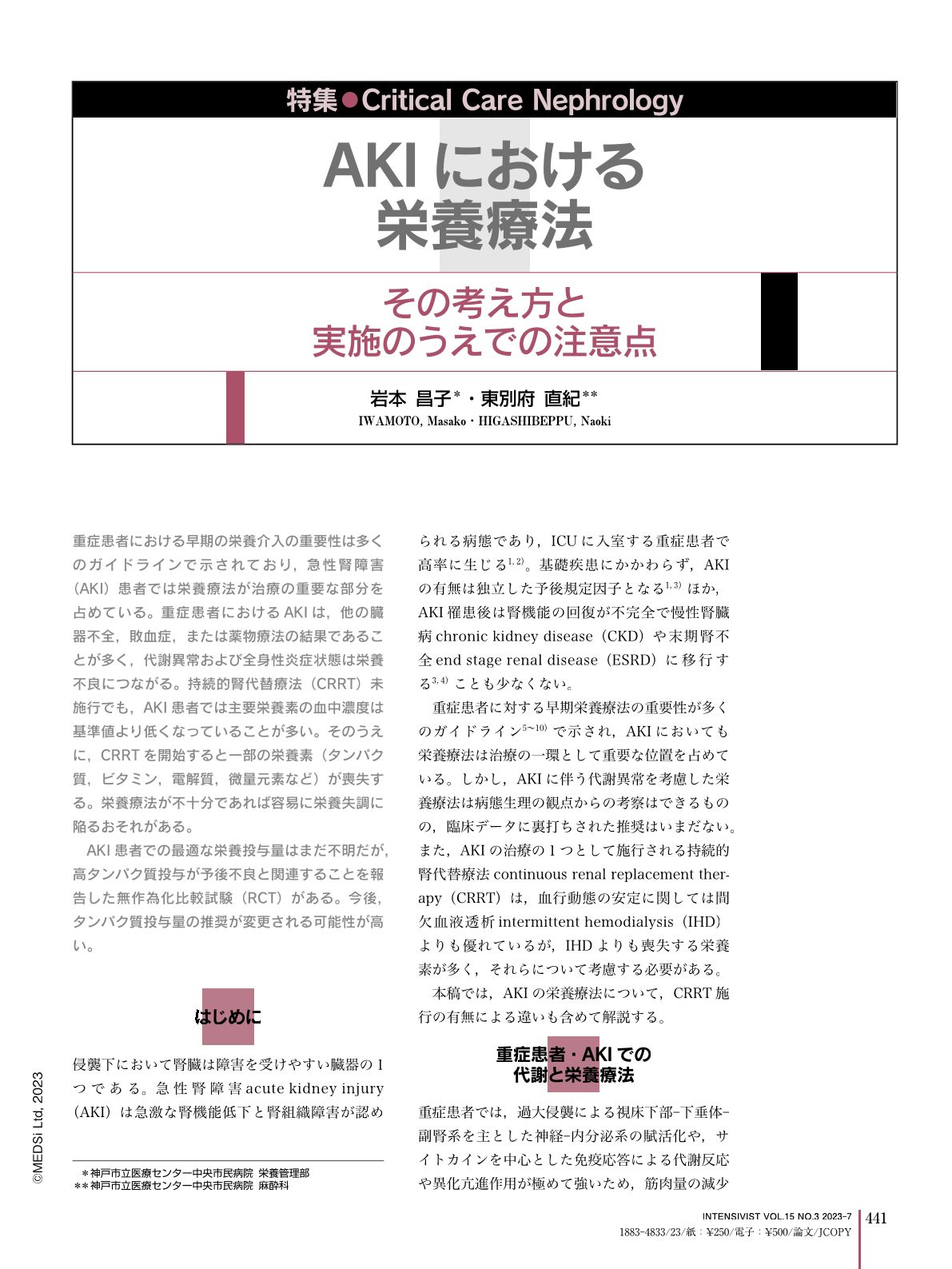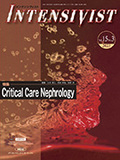Japanese
English
- 有料閲覧
- Abstract 文献概要
- 1ページ目 Look Inside
- 参考文献 Reference
重症患者における早期の栄養介入の重要性は多くのガイドラインで示されており,急性腎障害(AKI)患者では栄養療法が治療の重要な部分を占めている。重症患者におけるAKIは,他の臓器不全,敗血症,または薬物療法の結果であることが多く,代謝異常および全身性炎症状態は栄養不良につながる。持続的腎代替療法(CRRT)未施行でも,AKI患者では主要栄養素の血中濃度は基準値より低くなっていることが多い。そのうえに,CRRTを開始すると一部の栄養素(タンパク質,ビタミン,電解質,微量元素など)が喪失する。栄養療法が不十分であれば容易に栄養失調に陥るおそれがある。
AKI患者での最適な栄養投与量はまだ不明だが,高タンパク質投与が予後不良と関連することを報告した無作為化比較試験(RCT)がある。今後,タンパク質投与量の推奨が変更される可能性が高い。
The importance of early nutritional intervention in critically ill patients is indicated in many guidelines, and nutritional therapy is an essential part of treatment in cases of AKI. AKI in critically ill patients is often the result of other organ failures, sepsis, or drug therapy, and metabolic abnormalities and systemic inflammatory conditions can lead to malnutrition. In addition, patients with severe AKI often have lower substandard blood levels of key nutrients, even without continuous renal replacement therapy. In those patients with continuous renal replacement therapy, there is additional loss of some nutrients (proteins, vitamins, electrolytes, trace elements, etc.) associated with continuous renal replacement therapy, and they easily fall to malnutrition if inadequate nutrition therapy. Although the optimal nutritional dosage is not yet known, one RCT has reported that high protein dosage is associated with a worse prognosis. There is a strong possibility that the recommendation for high protein dosage will change.

Copyright © 2023, MEDICAL SCIENCES INTERNATIONAL, LTD. All rights reserved.


